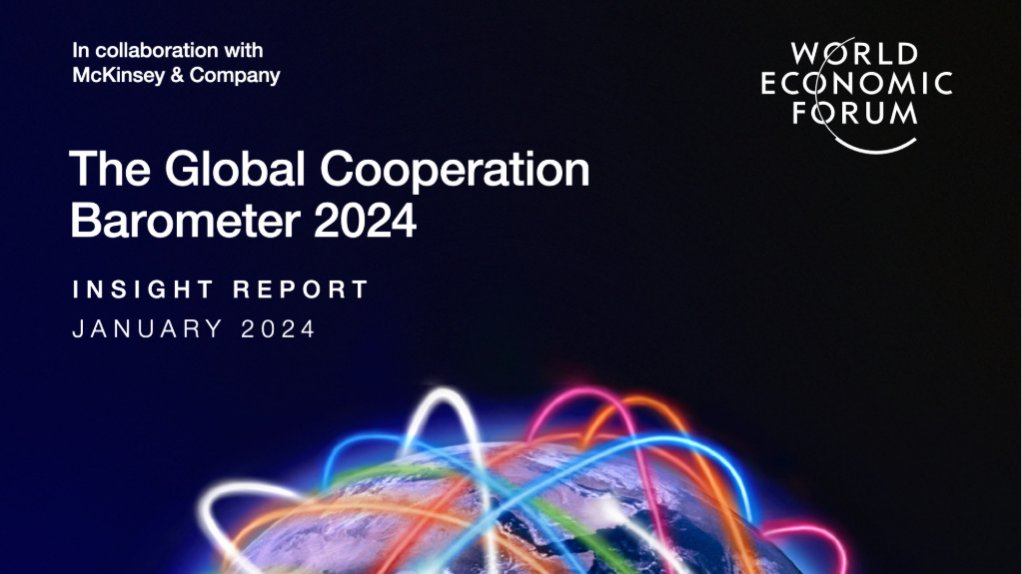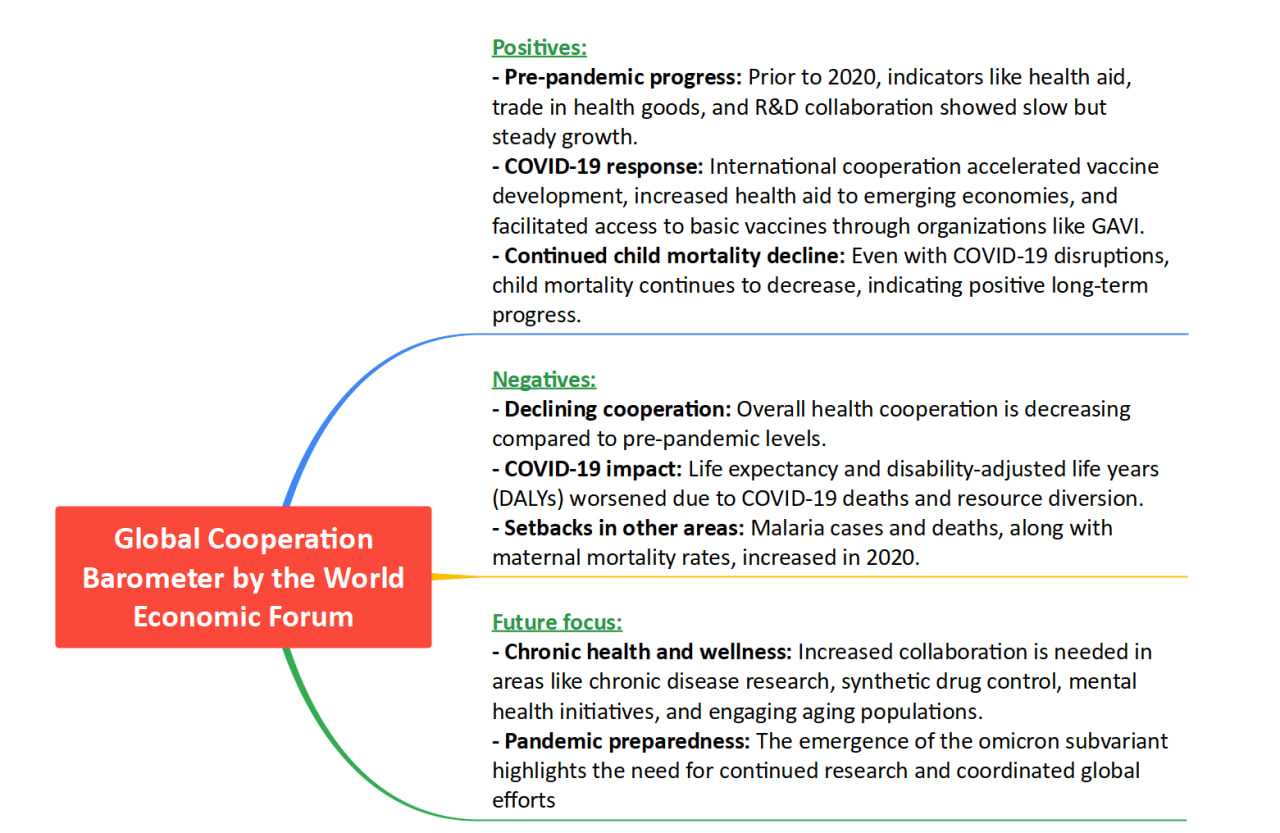Description

Copyright infringement not intended
Picture Courtesy: www.polity.org.za
Context: The Global Cooperation Barometer 2024, released by the World Economic Forum (WEF) and developed in collaboration with McKinsey & Company, highlights significant challenges faced by the world in the last three years.
Key Highlights of the Report
Challenges in the Last Three Years
- The world has faced significant challenges in the last three years, including setbacks in global health cooperation and a rise in violent conflicts.
- The report indicates a decline in overall global cooperation since 2020.
Global Cooperation Barometer 2024
- The report, titled "The Global Cooperation Barometer 2024," was released on January 8, 2024, ahead of the WEF’s annual meeting in Davos, Switzerland.
- Developed in collaboration with McKinsey & Company, the barometer used 42 indicators to measure five pillars of global cooperation between 2012 and 2022.
Five Pillars of Global Cooperation
- The five pillars assessed are trade and capital; innovation and technology; climate and natural capital; health and wellness; and peace and security.
Health and Wellness Pillar
- The report examined the impact of global cooperation on enabling people worldwide to lead longer and healthier lives.
- Emphasis on understanding the burden of disease, life expectancy, quality of life, global public health standards, and collaboration through goods flows, research and development (R&D), intellectual property (IP), and health financing.

Pre-2020 Trends in Health Cooperation
- Before 2020, most indicators of health cooperation, such as health development assistance, trade in health goods, and health-related R&D and IP flows, grew slowly and steadily.
Positive Outcomes (Pre-2020)
- Health outcomes like life expectancy, disability-adjusted life years (DALYs), and maternal and child mortality improved from 2012 through 2019.
- Factors contributing include increased healthcare development aid and global efforts to address preventable and controllable diseases.
Impact of COVID-19 on Health Cooperation
- As the immediate impact of COVID-19 subsides, global health cooperation appears to be decreasing but remains above 2019 levels for certain metrics.
- Reductions in child mortality continue, but overall life expectancy and DALYs suffered due to COVID-19-related deaths and diverted resources.
Global Health Challenges Post-COVID-19
- Challenges include increased malaria cases and deaths, a rise in maternal mortality rates, and negative impacts on life expectancy.
- The report emphasizes the need to redouble efforts on chronic health and wellness challenges beyond pandemic responses.
Areas Requiring Redoubled Cooperation
- International partnerships for basic research on health conditions, addressing synthetic drug proliferation, improving mental health outcomes, and engaging ageing populations.

Conclusion
- The report emphasizes the challenges and changes in global cooperation, particularly in the health and wellness sector, and underscores the importance of continued collaboration in addressing various health-related challenges on a global scale.
|
PRACTICE QUESTION
Q. Which organization collaborated with the World Economic Forum on the Global Cooperation Barometer 2024?
A. United Nations Development Programme (UNDP)
B. McKinsey & Company
C. World Bank
D. International Labour Organization (ILO)
Answer: B
Explanation: The Global Cooperation Barometer 2024 was developed in collaboration with management consultants McKinsey & Company.
|

















